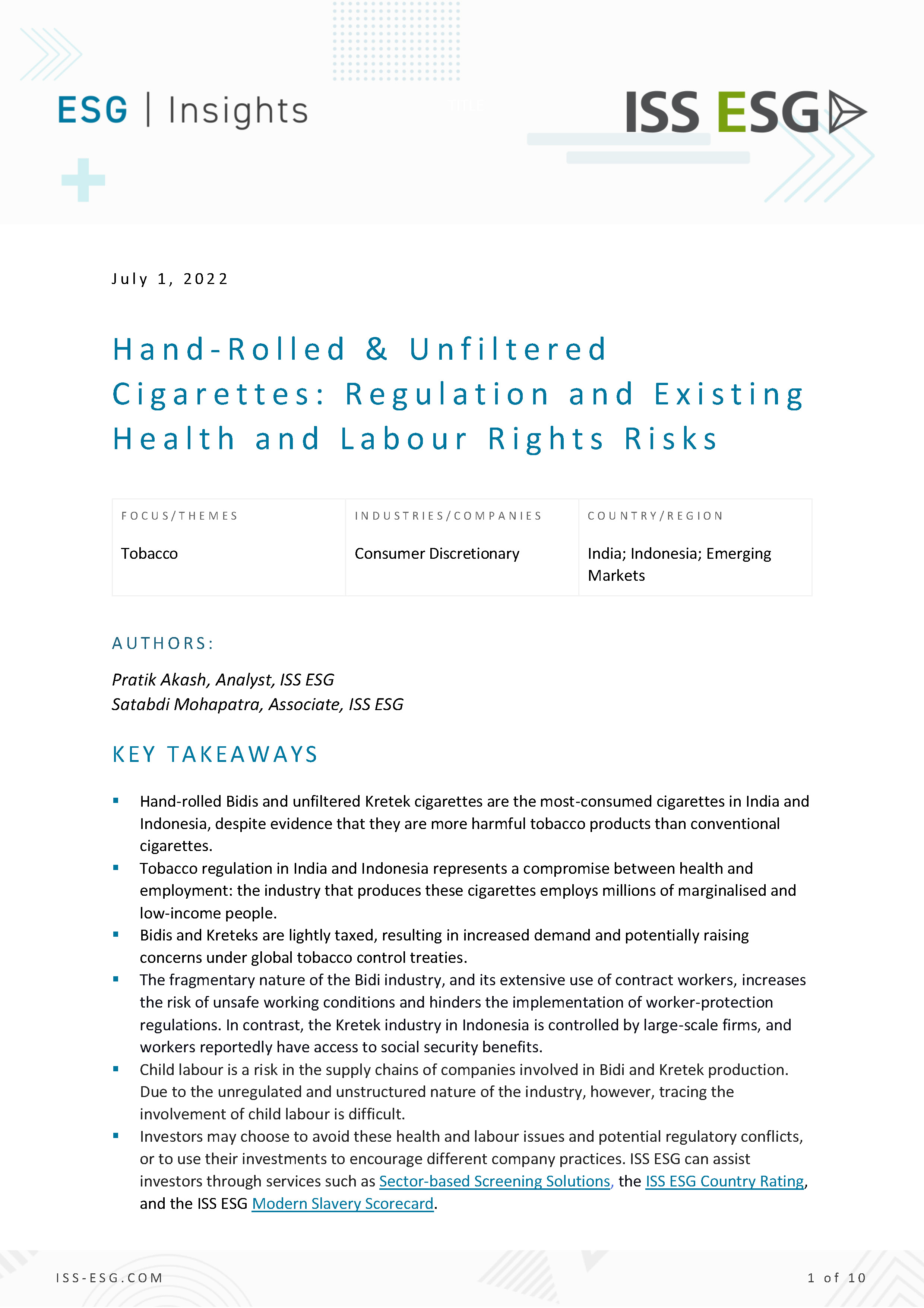
Hand-Rolled & Unfiltered Cigarettes: Regulation and Existing Health and Labour Rights Risks
JULY 1, 2022
KEY TAKEAWAYS
- Hand-rolled Bidis and unfiltered Kretek cigarettes are the most-consumed cigarettes in India and Indonesia, despite evidence that they are more harmful tobacco products than conventional cigarettes.
- Tobacco regulation in India and Indonesia represents a compromise between health and employment: the industry that produces these cigarettes employs millions of marginalised and low-income people.
- Bidis and Kreteks are lightly taxed, resulting in increased demand and potentially raising concerns under global tobacco control treaties.
- The fragmentary nature of the Bidi industry, and its extensive use of contract workers, increases the risk of unsafe working conditions and hinders the implementation of worker-protection regulations. In contrast, the Kretek industry in Indonesia is controlled by large-scale firms, and workers reportedly have access to social security benefits.
- Child labour is a risk in the supply chains of companies involved in Bidi and Kretek production. Due to the unregulated and unstructured nature of the industry, however, tracing the involvement of child labour is difficult.
- Investors may choose to avoid these health and labour issues and potential regulatory conflicts, or to use their investments to encourage different company practices. ISS ESG can assist investors through services such as Sector-based Screening Solutions, the ISS ESG Country Rating, and the ISS ESG Modern Slavery Scorecard.



